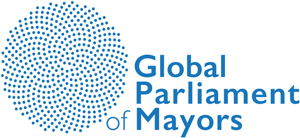The Hague, December 4, 2017 – As politicians, experts and activists come together in Puerto Vallarta to start shaping the Global Compact for Safe, Orderly and Regular Migration (GCM) that will be adopted a year from now, the Global Parliament of Mayors calls on national leaders to rise to this occasion and commit to ambitious and concrete actions for children.
Fifty million children are on the move today, most moving to, from and between cities, and it is city leaders who are responsible for whether migrant children’s most immediate needs are met. Many strive to meet these needs regardless of where a child comes from and regardless of his/her migration status.
The Global Parliament of Mayors hopes that 2018 can become a watershed moment for the protection and empowerment of migrant children, and anticipates a focus on this during its Annual Summit in Bristol (UK) in October 2018. For this to happen, the Global Compact for Migration must include the following key commitments – commitments that countless Mayors around the world are, through their actions, making a reality in their respective cities:
- A child is a child. The key principle stemming from the Convention on the Rights of the Child that all children have the same rights and should receive the same treatment, needs to be enshrined in the GCM. Treatment that would be deemed unacceptable for a national child cannot be acceptable for any other child – refugee, asylum-seeker or migrant; documented, undocumented or stateless.
- Ensure access to services. All migrant children, regardless of migration, nationality or residence status, should have equal access in law and practice to education, healthcare, child protection, legal aid and social housing on par with national children. Firewalls between service providers and law enforcement or immigration authorities must be in place to ensure that no child is hampered from accessing such services.
- Invest in reception, care and protection. National, regional and local authorities must invest in integrated reception, care and protection systems and standards for all children and in well-trained personnel. Child protection authorities should always be in the lead when it comes to migrant children, working in close collaboration with law enforcement or immigration authorities. Children should be given the opportunity to express their views freely in all matters that affect them in accordance with their age and maturity, provided with age-appropriate information about their situation, and appointed a legal guardian. Communication and coordination systems across municipalities are key to ensure a continuum of care for children who move between them.
- End child immigration detention. No migrant child should be detained, as this is never in his/her best interests. Alternatives to detention should be used instead that allow children to remain with their family members or guardians in non-custodial and community-based contexts while their immigration status is being resolved and their best interests are assessed.
- Ensure families are kept together. It is also in the best interest of the child to keep families together. Unaccompanied or separated children are more vulnerable to violence and abuse. Therefore, we need to invest in stronger policies to prevent children from being separated from their families as well as cross-border family reunification procedures. It is essential that families are provided with the necessary support to allow children to be raised in a safe and supporting environment.
- Promote inclusion. Combat xenophobia, discrimination and exclusion. This should be done through policies that provide pathways out of irregularity, give all children an equal chance, make them feel at home, and promote and communicate their belonging. Such policies will help them grow into engaged citizens, who in many cases will also embrace transnational identities.
The Global Parliament of Mayors stands ready to work alongside national leaders, regional and local authorities UNICEF and other members of the Initiative for Child Rights in the Global Compacts and all stakeholders to welcome, empower and protect every migrant child, widening and accelerating action for migrant children before and after the adoption of the Global Compact for Migration.

